第97章 Chapter (1)
Marion summoned to the Camp of Greene -- Defeats the British Horse at St. Thomas -- Leaves his Command to Horry, and takes his Seat in the Assembly at Jacksonborough, as Senator from St. John's, Berkeley --Proceedings of the Assembly -- Confiscation Act --Dispute between Cols. Mayham and Horry -- The Brigade of Marion surprised, during his absence, by a Detachment from Charleston -- Marion's Encounter with the British Horse -- Conspiracy in the Camp of Greene.
While the army of Greene lay at Round O., considerable alarm was excited in the American camp by tidings of large reinforcements made to the British strength in Charleston. General Leslie was now in command of the latter. The contraction of the American military `cordon' had very greatly straitened the resources and comforts of the British general.
The numerous refugees who had taken shelter in the city with their families, the great accumulation of horses within the lines, and the vigilant watch which was maintained over the islands and the neck by the American light detachments, soon contributed to lessen the stock of provisions in the capital, and to cut off its supplies. One consequence of this condition was to compel Leslie to put two hundred of his horses to death; while, by all other possible means, he collected his provisions from the surrounding country. Considerable parties were kept upon the alert for this object, and, to facilitate the movements of these parties, strong posts were established at Haddrel's Point and Hobcaw.
The situation of these posts, on the extremities of tongues of land, to which assistance might easily be conveyed by water, and from which retreat, to an attacking enemy, was difficult, rendered them comparatively safe, for the present, against the Americans. But the situation of Leslie was one of uncomfortable constraint, and it was natural that he should avail himself of any prospect which might promise him relief.
It was readily believed, therefore, in the American camp, that, with the acquisition of new strength, by the arrival of reinforcements from abroad, Leslie would seek to break through the cordon put around him.
The rumor of his approach, in strength, caused Greene to issue his orders to Marion to repair to headquarters with all the force he could draw after him. Our partisan promptly obeyed the summons;but, on his way to join with Greene, he left a detachment of mounted infantry in the neighborhood of Monk's Corner, to watch the motions of the enemy.
But Leslie's purpose was mistaken. His strength had been exaggerated.
He had no designs upon the camp of Greene, being no doubt quite as ignorant of his weakness as the latter was of the British strength.
But the detachment left by Marion near Monk's Corner caught the attention of the enemy, and, in the absence of the partisan, it was thought accessible to a proper attempt from Charleston.
In all the movements of the British, it is very evident that they attached no small importance to the presence of this chief.
A detachment of three hundred men, cavalry and infantry, was transported by water to the north bank of the Wando river.
This body moved with equal secrecy and celerity. But they were disappointed in their aim. Marion had returned from the Continental camp to his own.
The storm which threatened the former was overblown, and he was in season to avert that by which the latter was threatened. His force was scarcely equal to that of the enemy. He nevertheless resolved upon attacking them.
In order to keep them in play, while he advanced with his main body, Cols. Richardson and Scriven, with a part of Mayham's horse, were dispatched with orders to throw themselves in front of the British, and engage them until he could come up. This order was gallantly executed.
They encountered the enemy's advance near the muster-house of St. Thomas, charged them vigorously, and succeeded in putting them to flight, with some slaughter. Capt. Campbell, of the British, and several others, were killed. But the pursuit was urged too far. The cavalry of Mayham, by which this success had been obtained, was of new organization.
Their training had been partial only. It was seen that, though they drove the British horse before them, their own charge was marked by disorder. Hurried forward by success, they rushed into the jaws of danger, and were only brought to their senses by an encounter with the whole of the British infantry.
A volley from this body drove them back in confusion, while the cavalry, which had been flying before them, encouraged by the presence of the infantry, rallied upon the steps of the pursuers, and drove them in turn.
They suffered severely, wedged upon a narrow causeway, which gave them as little room for escape as evolution.
Twenty-two fell upon the spot, by the fire of the infantry.
The rest were rallied when sufficiently far from the more formidable enemy, and, turning upon the British cavalry, once more put them to flight.
But the event left Marion too weak to press the encounter.
He contented himself with watching the motions of the British, and they were sufficiently respectful not to press him to any less pacific performance. They were satisfied to pursue their march, and, gathering a few head of cattle, to retire to Haddrell's, foregoing the more important object of their incursion. The field clear, Marion left his brigade in charge of Horry, and repaired to Jacksonborough, to attend the Assembly, to which he had been elected a member from St. John, Berkeley, the same parish which he represented in the Provincial Congress at the beginning of the war.